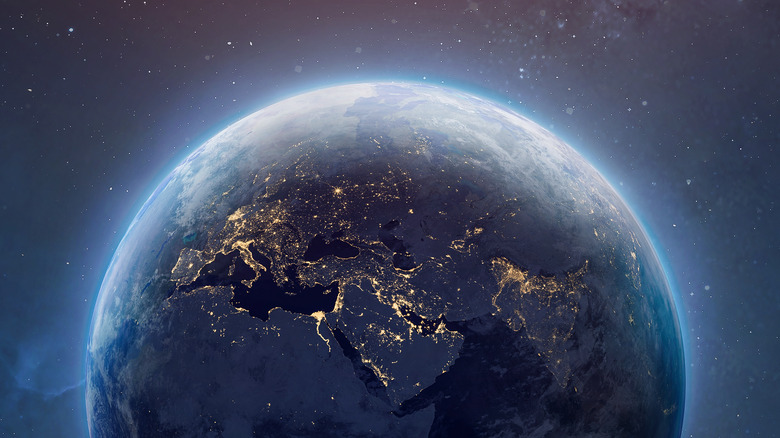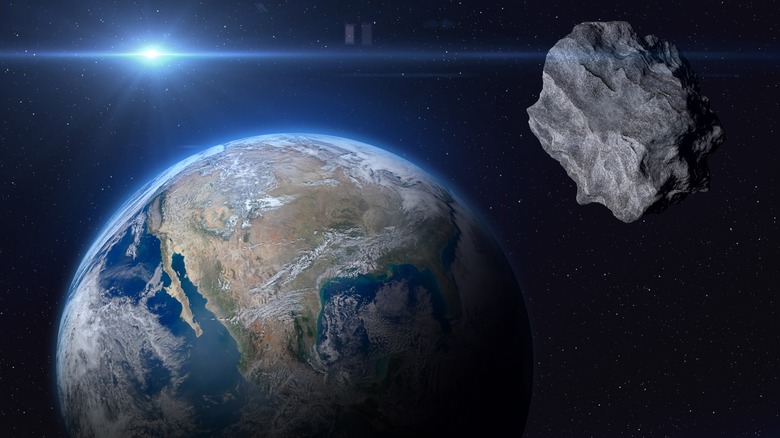What Would Happen If Earth Were The Lone Planet In Our Solar System?
While it can feel pretty lonely on Earth sometimes, we are surrounded by other living beings to keep us company. Not only that, but we have our fellow planets all orbiting the sun with us. But what would happen if the other seven planets in our solar system were to disappear? What if they never existed at all? Well, it turns out things would get a little weird. In fact, we might not even be here if it weren't for our planetary neighbors.
Assuming all planets except Earth just suddenly disappeared, the first indication would be subtle changes in the night sky. Five of the other planets — Mercury, Venus, Mars, Jupiter, and Saturn — are all visible at night in our skies, looking like bright stars (via Alder Planetarium). According to History, these planets were even visible to ancient astronomers, leading the Romans to name them after gods and goddesses. The lack of these planets in the night sky would be immediately noticeable to astronomers, but these differences may not be as obvious to the untrained eye. Differences in the sky wouldn't be the only change, however, and certainly not the change with the greatest impact, either.
Gravity would work very differently
If all the other planets were to disappear, it would have an impact on Earth's orbit around the sun. While the sun's gravity does most of the work holding us in our orbit, the other planets play an important role in keeping the balance. According to What If, there would be no way to tell where we might end up without the other planets keeping our orbit in check. We could drift too close to the sun and burn up, or we might end up out where Neptune and Uranus presently reside, where temperatures would be too cold for us to survive.
Even if Earth managed to stay in its current orbit, there could still potentially be some negative effects caused by the lack of other planets. For example, Jupiter's immense gravity acts like an asteroid and comet magnet, keeping them from hitting other planets, including Earth (via Earth Sky). Without Jupiter's gravitational influence, we might see more asteroids and comets hitting our planet over time.
Life on Earth would probably never exist
The other planets play a large role in helping us maintain our orbit around the sun. This is important, as the Earth's orbit is located in something known as the "Goldilocks Zone." According to NASA, the Goldilocks Zone, also known as the habitable zone, is the area around a star where liquid water can exist. That is because conditions in this zone are "just right" for life, neither too cold nor too hot.
The conditions required for life to begin on a planet are already difficult to meet, and in Earth's case it would be nearly impossible for lie to occur without our solar system neighbors. Earth is the only planet orbiting the sun in the Goldilocks Zone. Without the other planets helping Earth stay there, it wouldn't be possible for our planet to support life (via What If). This incredible balancing act that allowed life to thrive on Earth could easily be disrupted if our place in the solar system were to change, even just a little.


